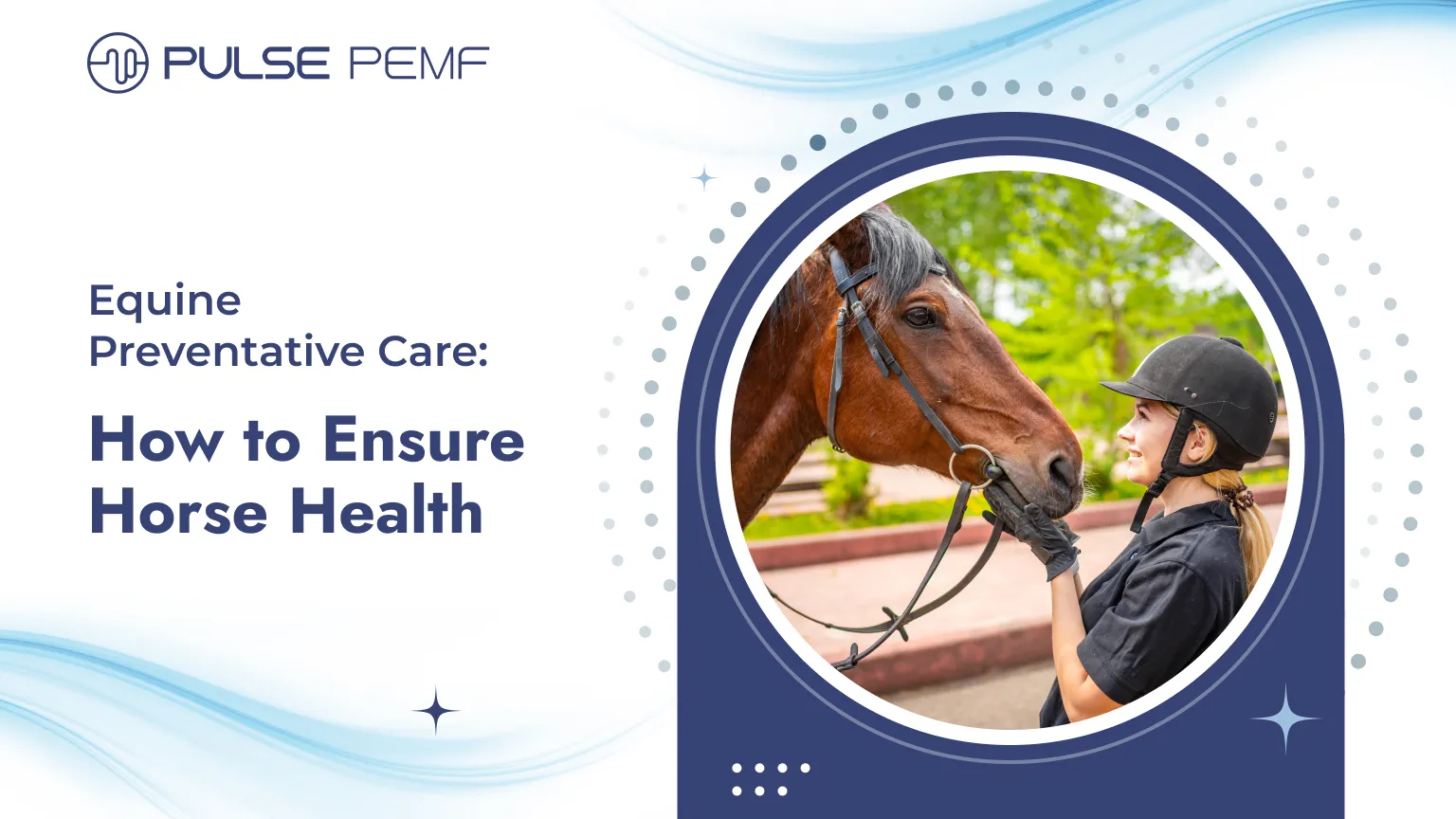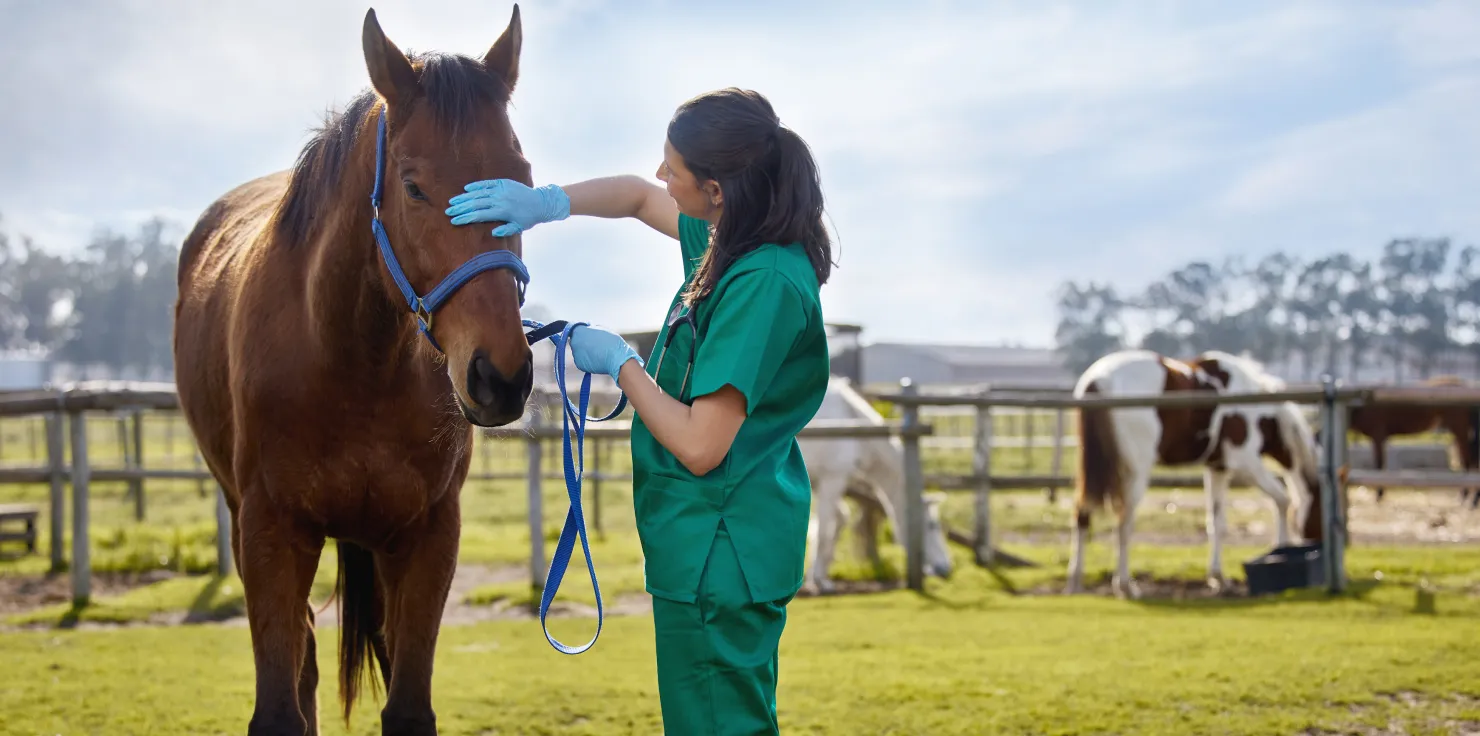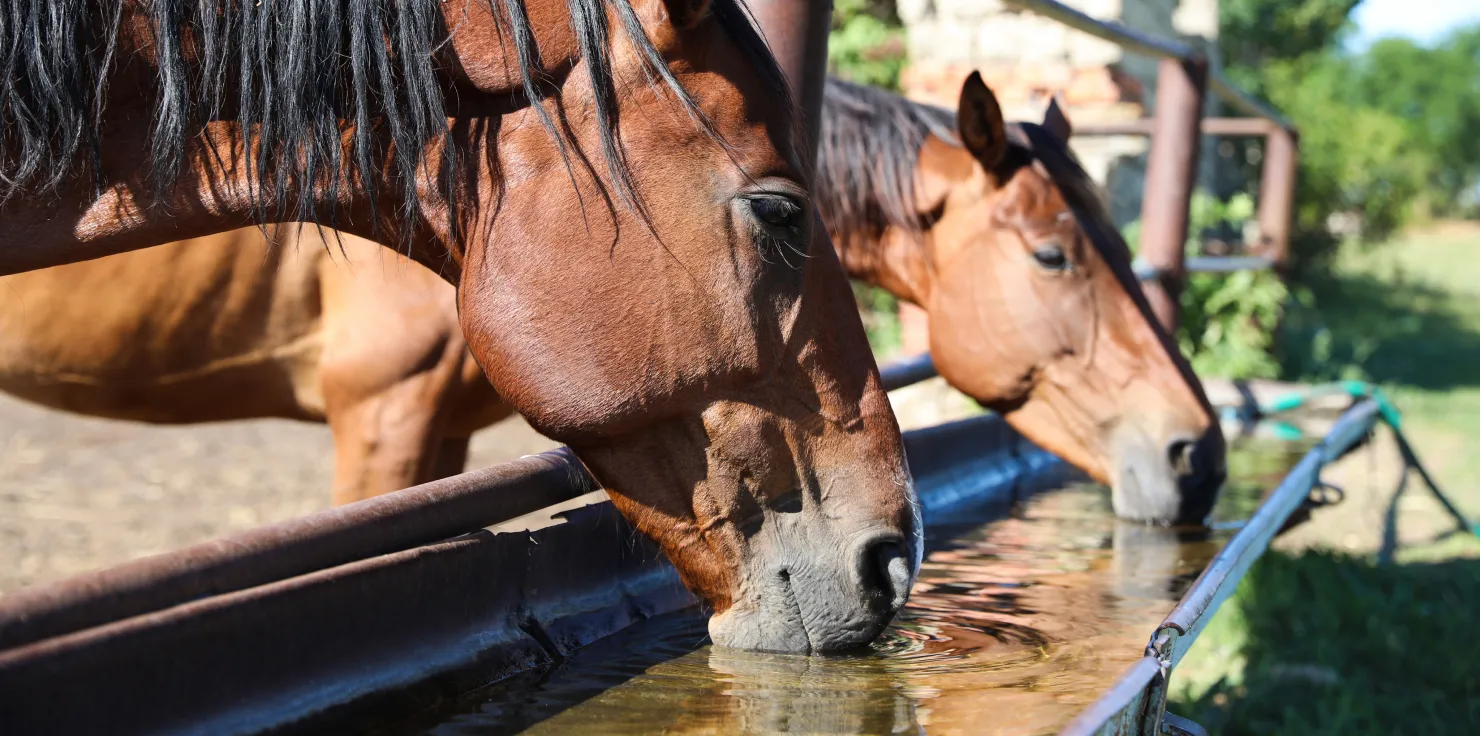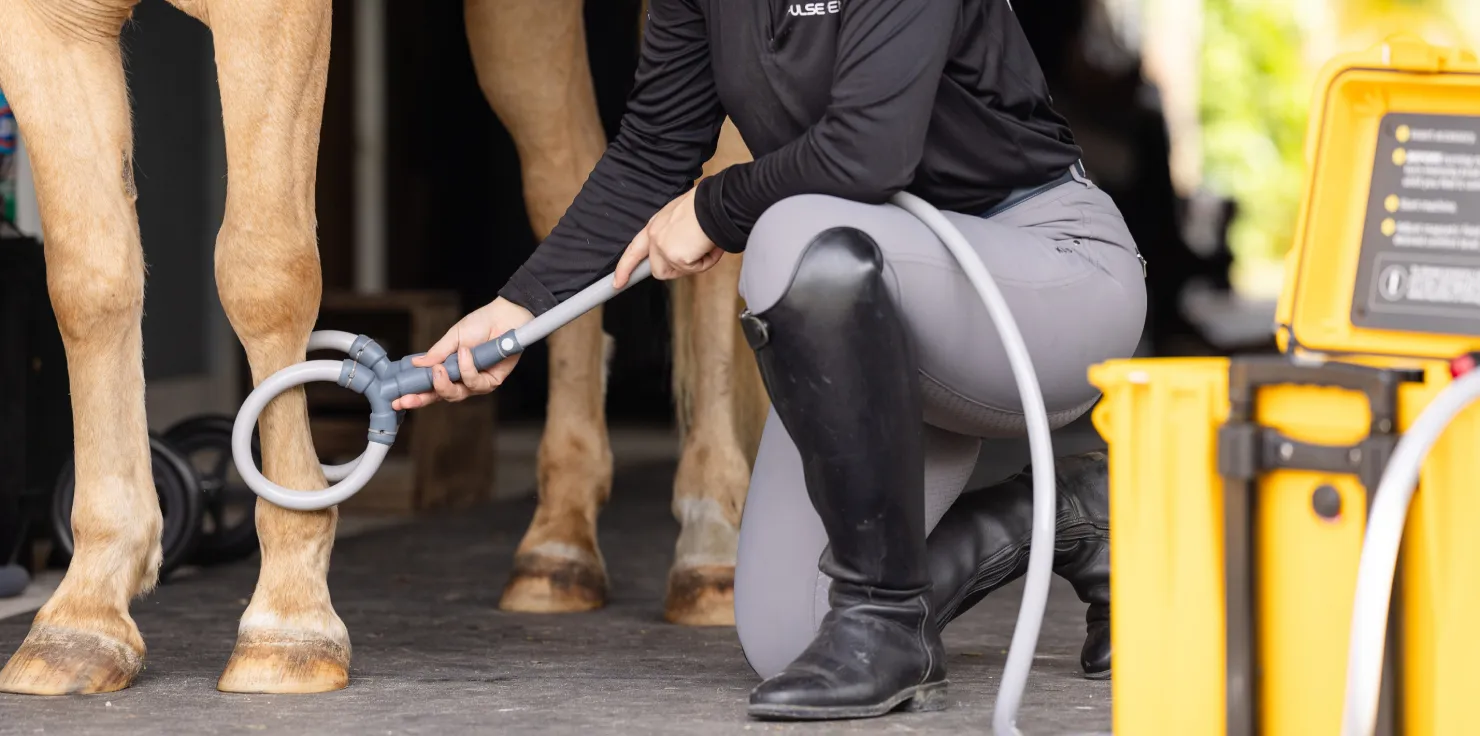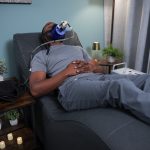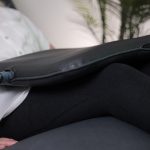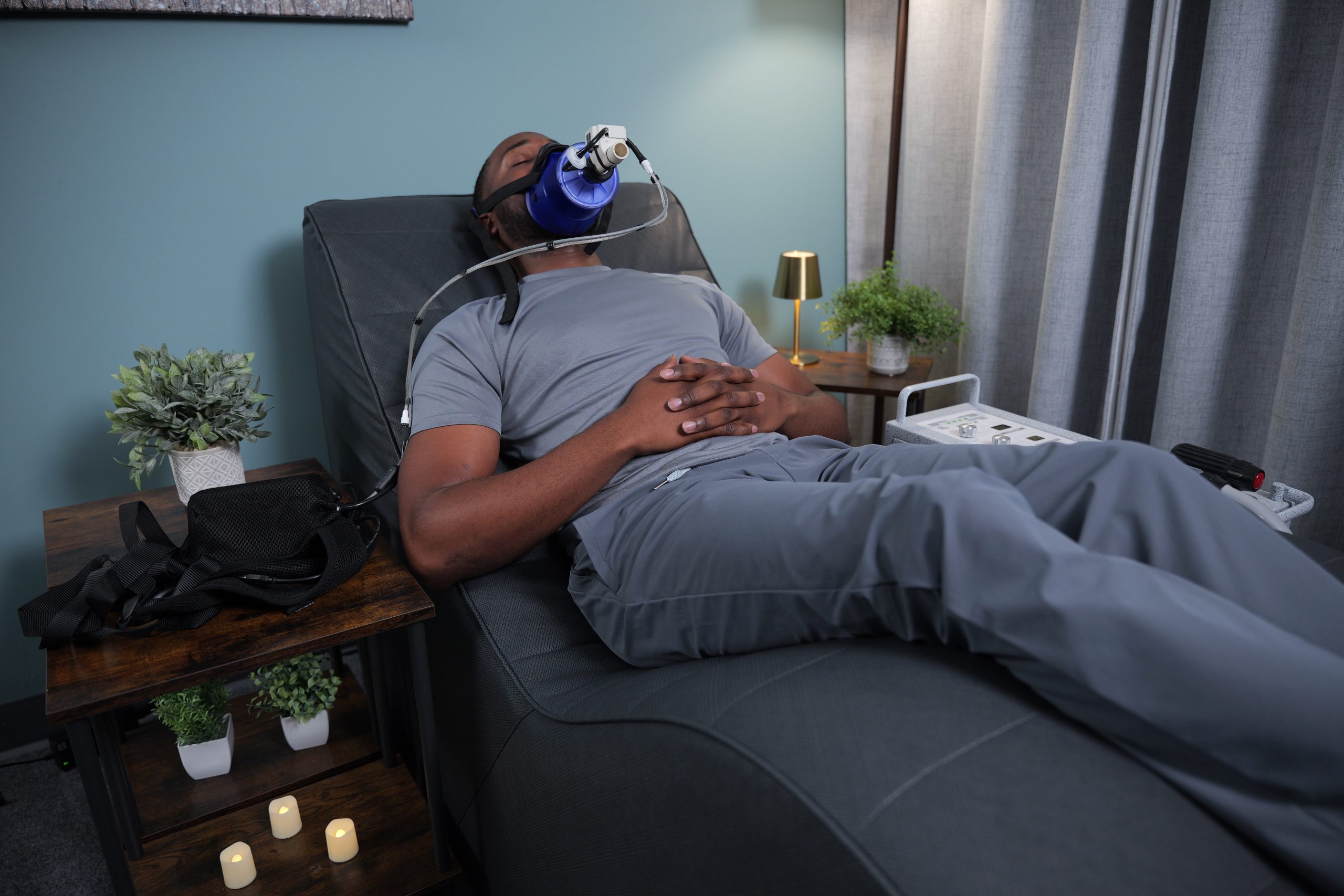Preventative care is crucial for maintaining your horse’s overall health and longevity.
By prioritizing routine care and early intervention, you can help prevent many common equine health issues and ensure your horse enjoys a happy and active life.
This blog post will provide a comprehensive guide to essential preventative care practices for horses. By the end, you’ll be empowered with proactive steps you can take to safeguard your horse’s health!
Understanding Equine Preventative Care
What is Preventative Care?
Preventative care in equine health involves taking proactive steps to maintain your horse’s well-being and prevent diseases or health problems. By implementing regular preventative measures, you can ensure your horse enjoys a high quality of life.
The goals of preventative care include:
- Early detection of health problems: Regular check-ups can help identify potential issues before they become more serious.
- Prevention of diseases: Vaccinations and deworming can help prevent contagious diseases and parasite infestations.
- Maintenance of optimal health: Routine care practices can help maintain your horse’s overall health and well-being.
Common Preventative Care Practices
Some essential preventative care practices for horses could include:
- Vaccinations
- Deworming
- Dental care
- Health assessments
By incorporating these routine care practices into your horse’s care routine, you can significantly improve their overall health and well-being.
Essential Components of Preventative Care
Regular Veterinary Check-Ups
Annual or bi-annual veterinary exams are essential for maintaining your horse’s health. During these check-ups, your veterinarian will conduct a thorough physical examination, assess your horse’s overall condition, and recommend any necessary tests or treatments.
A typical veterinary check-up may include:
- Physical examination: Assessing your horse’s weight, body condition, gait, and overall health.
- Blood work: Testing for signs of disease, anemia, or other health problems.
- Fecal tests: Checking for parasites and intestinal issues.
Vaccination Protocols
Vaccinations are crucial for protecting your horse from contagious diseases. The specific vaccinations needed will depend on factors such as your horse’s age, location, and lifestyle.
Common equine vaccinations include:
- Tetanus
- Equine influenza
- Eastern Equine Encephalitis
- West Nile Virus
- Rabies
Consult with your veterinarian to determine the most appropriate vaccination schedule for your horse.
Parasite Control and Deworming
Controlling internal and external parasites is essential for preventing health problems and maintaining your horse’s well-being. Effective deworming strategies may involve:
- Regular deworming: Administering dewormers as recommended by your veterinarian.
- Fecal egg counts: Using fecal egg counts to monitor parasite levels and adjust deworming protocols accordingly.
- Environmental management: Taking steps to reduce parasite exposure, such as avoiding contaminated pastures and cleaning up manure.
Dental Care
Dental problems can lead to pain, weight loss, and digestive issues in horses. Regular dental check-ups and floating (filing down sharp edges of teeth) are essential for maintaining your horse’s oral health.
The recommended frequency for dental check-ups will depend on your horse’s individual needs. However, most horses benefit from dental exams at least once a year.
Hoof Care and Farrier Visits
Regular hoof trimming and maintenance are crucial for preventing lameness and other hoof-related issues. A qualified farrier can help ensure your horse’s hooves are properly balanced and maintained.
Tips for maintaining healthy hooves between farrier visits include:
- Keeping the hooves clean and free of debris.
- Avoiding excessive exposure to wet or muddy conditions.
- Providing adequate hoof boots or wraps if necessary.
Nutrition and Hydration
Balanced Diet
A well-balanced diet is essential for maintaining your horse’s overall health and performance. The specific nutritional needs of your horse will depend on factors such as their age, activity level, and health status.
Key nutrients that are essential for horses include:
- Protein: For muscle development and repair.
- Carbohydrates: For energy.
- Fats: For energy and essential fatty acids.
- Vitamins: For various bodily functions.
- Minerals: For bone health, muscle function, and other essential processes.
Consulting with a veterinarian or equine nutritionist can help you develop a tailored diet plan that meets your horse’s specific needs.
Proper Hydration
Ensuring your horse has constant access to clean, fresh water is crucial for their health and well-being. Dehydration can lead to various health problems, including colic, kidney issues, and decreased performance.
Tips for encouraging hydration include:
- Provide clean, fresh water: Ensure your horse’s water trough is always clean and filled with fresh water.
- Monitor water intake: Pay attention to how much water your horse is consuming, especially during hot weather or after exercise.
Monitoring Body Condition
The Body Condition Score (BCS) is a system used to assess a horse’s body condition. A BCS of 5-6 is generally considered ideal for most horses, but it varies across different breeds. Check with your veterinarian to understand the best BCS score for your horse.
By monitoring your horse’s body condition, you can adjust their diet and exercise as needed to maintain a healthy weight. If your horse is underweight or overweight, consult with your veterinarian to develop a plan to address these issues.
Exercise and Conditioning
Importance of Regular Exercise
Consistent exercise is essential for maintaining your horse’s muscle tone, cardiovascular health, and mental well-being. A well-designed exercise program can help your horse stay fit, healthy, and happy.
When designing an exercise program, consider factors such as your horse’s age, breed, and activity level. A young, athletic horse may require more intense exercise than an older, more sedentary horse.
Preventing Injuries through Proper Conditioning
Proper conditioning is crucial for preventing overuse injuries and ensuring your horse’s long-term soundness. By gradually increasing exercise intensity and duration, you can help your horse build strength and endurance.
Techniques for safely increasing exercise intensity include:
- Interval training: Alternating between high-intensity and low-intensity exercise.
- Hill work: Incorporating hills into your horse’s exercise routine to challenge their muscles.
- Cross-training: Engaging in different types of exercise, such as swimming or riding in a variety of terrains.
Rest and Recovery
Rest days are essential for preventing overexertion and allowing your horse’s body to recover from exercise. Adequate rest can help prevent injuries and maintain your horse’s overall health.
Signs that your horse may need more rest or adjustments to their exercise routine include:
- Decreased performance: If your horse is struggling to keep up or seems lethargic during exercise.
- Lameness or stiffness: Any signs of pain or discomfort.
- Changes in behavior: If your horse is exhibiting unusual behavior, such as aggression or anxiety.
Integrating Emerging Therapies in Preventative Care
PEMF Therapy for Preventative Health
PEMF stands for Pulsed Electromagnetic Field Therapy. It involves applying gentle pulses of electromagnetic fields to your horse’s body, stimulating their cells to help them function better overall.
Research suggests PEMF therapy may offer several benefits for horses, including:
Increased range of motion
Enhanced energy levels
Healthy joint and cartilage function
Enhanced relaxation
Optimized overall wellness
PEMF therapy is gaining popularity in horse care due to its non-invasive nature and potential to promote self-healing and recovery at the cellular level.
Learn more about the powerful potential benefits of PEMF for horses here.
Other Complementary Therapies
In addition to PEMF therapy, other complementary therapies can be used to support your horse’s health and well-being. These therapies can often be used in conjunction with traditional preventative care practices to provide a more comprehensive approach to equine health.
For more information on these emerging therapies, check out this blog post: The Future of Horse Care: Innovative Therapies to Watch.
Monitoring and Early Detection
Importance of Daily Observation
Daily health checks are essential for recognizing early signs of illness or discomfort in your horse. By paying close attention to your horse’s behavior, physical condition, and vital signs, you can identify potential health problems and seek veterinary attention promptly.
Tips for conducting daily health checks include:
- Observe your horse’s behavior: Look for any changes in your horse’s attitude, appetite, or energy levels,
- Check for physical signs: Examine your horse’s coat, eyes, gums, and hooves for any abnormalities.
- Monitor vital signs: Take note of your horse’s temperature, heart rate, and respiratory rate.
- Keep a log: Record your observations and any changes in your horse’s behavior or physical condition.
Early Intervention Strategies
If you notice any signs of illness or injury, it’s important to respond promptly to prevent the problem from escalating. Work closely with your veterinarian to develop early intervention plans and seek appropriate treatment as needed.
By monitoring your horse’s health and intervening early, you can help prevent serious health problems and ensure your horse’s well-being.
Conclusion
Preventative care is essential for maintaining your horse’s long-term health and well-being. By prioritizing routine care, early intervention, and monitoring your horse’s health, you can help prevent many common equine health issues and ensure your horse enjoys a happy and healthy life.
Ready to learn more about how PEMF therapy might enhance your horse’s health and well-being? Contact us today to discuss how PEMF could be integrated into your horse’s preventative care routine!

